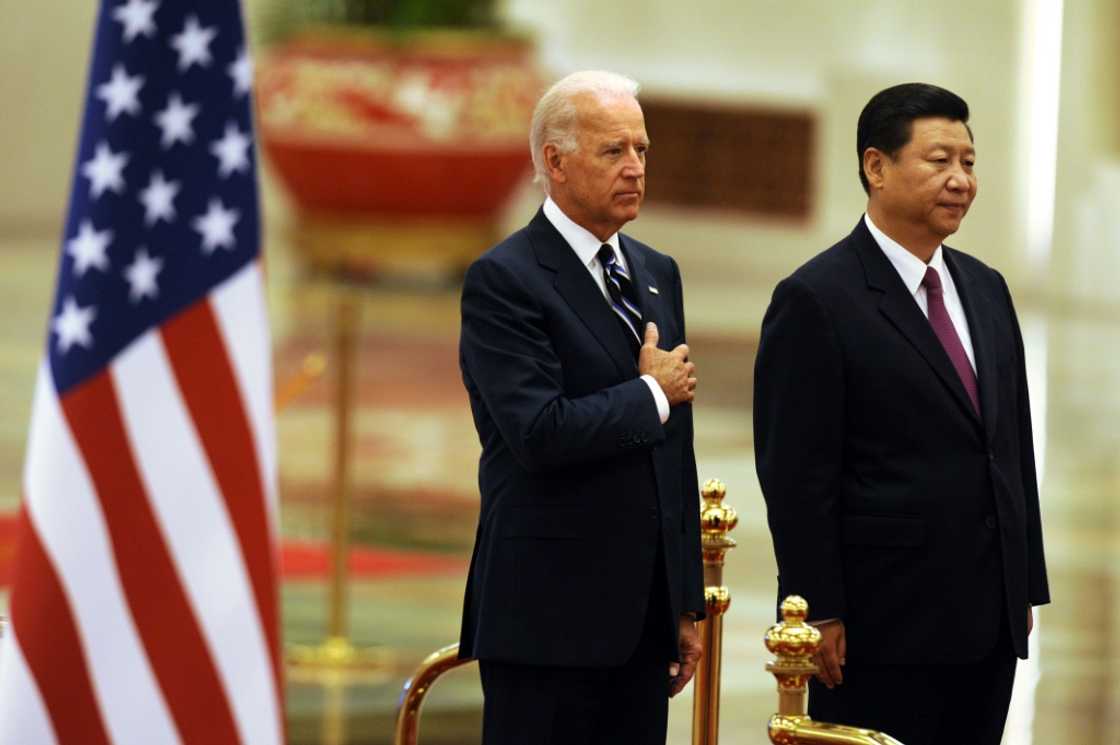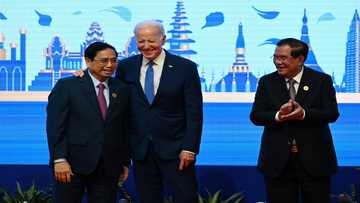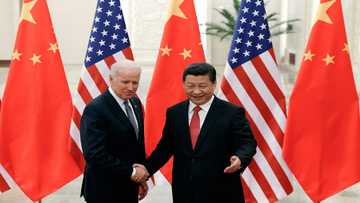Biden and Xi centre stage as G20 gathers in Indonesia

Source: AFP
PAY ATTENTION: Сheck out news that is picked exactly for YOU ➡️ find “Recommended for you” block on the home page and enjoy!
Leaders from the world's 20 largest economies arrive on the Indonesian island Bali on Monday for a post-pandemic reunion chilled by Sino-US rivalry and overshadowed by a superpower sit-down between Joe Biden and Xi Jinping.
With people worldwide feeling the bite of stratospheric food and fuel prices, Ukraine mired in conflict and the threat of nuclear war casting a menacing pall, G20 presidents and prime ministers will see what, if anything, they can agree to do about it.
It is the biggest gathering by the group of leaders since the pandemic began.
But this is no fond reunion.
Over the last three years, the rivalry between China and the United States has intensified sharply as Beijing has become more powerful and more assertive about replacing the US-led order that has prevailed since World War II.
Monday's face-to-face between Biden and Xi on the margins of the G20 has the air of the icy Cold War conclaves between American and Soviet leaders at Potsdam, Vienna or Yalta that decided the fate of millions.
PAY ATTENTION: Enjoy reading our stories? Join YEN.com.gh's Telegram channel for more!
Biden has spoken about the meeting establishing each country's "red lines" in the hope that competition does not spill into confrontation and conflict.
US National Security Advisor Jake Sullivan said Biden would be "totally straightforward and direct" with Xi and expect the same in return.
Officials say he will also push China to rein in ally North Korea after a record-breaking spate of missile tests sent fears soaring that Pyongyang will soon carry out its seventh nuclear test.
Xi may be in no mood to help. He enters the meeting buoyed from recently securing a landmark third term in office, cementing him as the most powerful Chinese leader for generations.
Meanwhile, Biden has been boosted by news that his Democratic Party retained control of the US Senate after performing better than expected at the midterm elections, although his domestic politics remains febrile.
Empty chair
There will be one conspicuous absence around the table -- Russian President Vladimir Putin.

Source: AFP
His botched nine-month-old invasion of Ukraine has made the trip to Bali logistically difficult and politically fraught.
With members of his inner circle quarrelling publicly and his once ironclad domestic authority tarnished, Putin instead elected to send veteran foreign minister Sergei Lavrov.
Officially, neither the war in Ukraine, nor Putin's dark threats to use nuclear weapons are on the summit agenda.
But while the ex-KGB man will not be at the summit table, his war will certainly be on the menu.
Soaring energy and food prices have hit richer and poorer G20 members alike –- and both are directly fuelled by the conflict.
There is likely to be pressure on Russia to extend a deal allowing Ukrainian grain and fertiliser shipments through the Black Sea when the current agreement expires on November 19.
At a minimum, Biden and his allies would also like to see the G20 make it clear to Putin that nuclear war is unacceptable.
Even that once uncontroversial position is likely to be blocked by a mixture of Russian opposition and Chinese unwillingness to break ranks with its ally in Moscow or give Washington a win.
At a recent meeting with German Chancellor Olaf Scholz, Xi said that a nuclear war cannot be won and should never be fought.
Ryan Hass, a former director for China at the US National Security Council, said Xi "likely will not be as magnanimous in his meeting with Biden".
"He will not want to be perceived as satisfying a request from Biden, whether on Ukraine, nuclear use, North Korea, or any other issue," Hass told AFP.
Russian rejection
The G20 -- a disparate and unwieldy grouping born in 1999 after the Asian financial crisis -- has always been most comfortable discussing finance and economics rather than security.

Source: AFP
Moscow would like it to stay that way.
"We categorically reject the politicisation of the G20," the Russian foreign ministry said Sunday, offering a taste of what leaders might hear from the famously unbending Lavrov.
"We are convinced that the G20 is meant to deal specifically with socio-economic issues."
Host Indonesia -- still careful not to favour either China or the United States -- is not confident that the leaders will be able to break the deadlock.
A string of G20 ministerial meetings in the run-up to the summit failed to agree on a final joint communique -- a procedural-sounding tradition that can be important in driving cooperation.
"Honestly, I think the global situation has never been this complex," said Indonesian government minister Luhut Binsar Pandjaitan on the eve of the summit.
"If eventually (the G20) leaders do not produce a communique, that's that, it's ok."
New feature: Сheck out news that is picked for YOU ➡️ find “Recommended for you” block on the home page and enjoy!
Source: AFP





